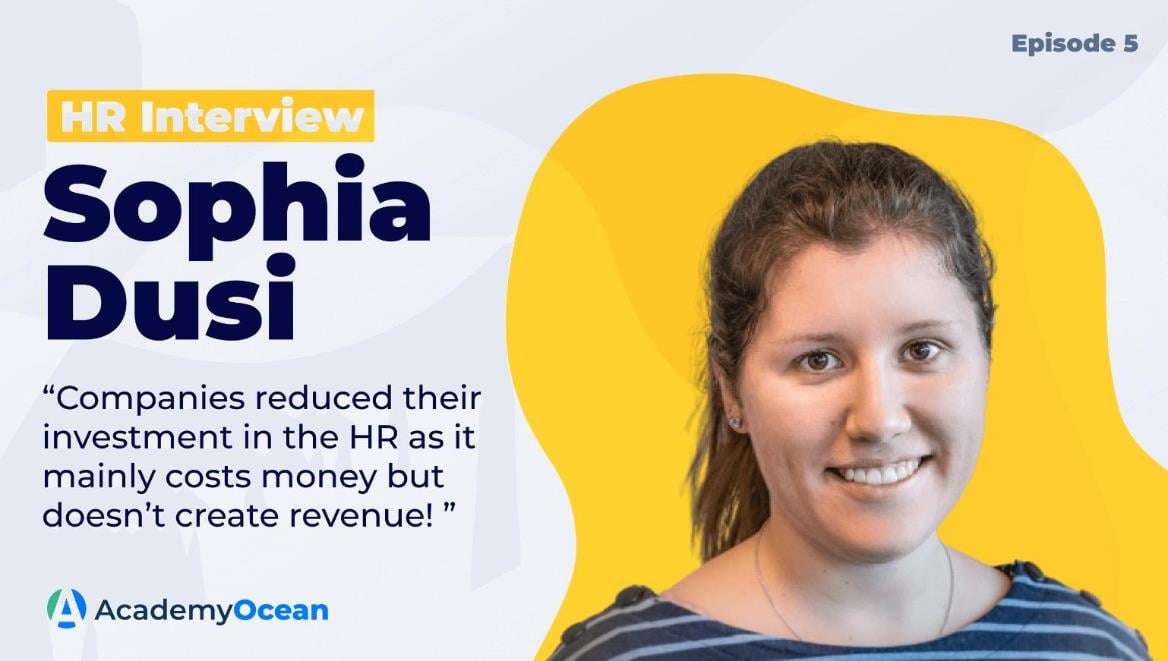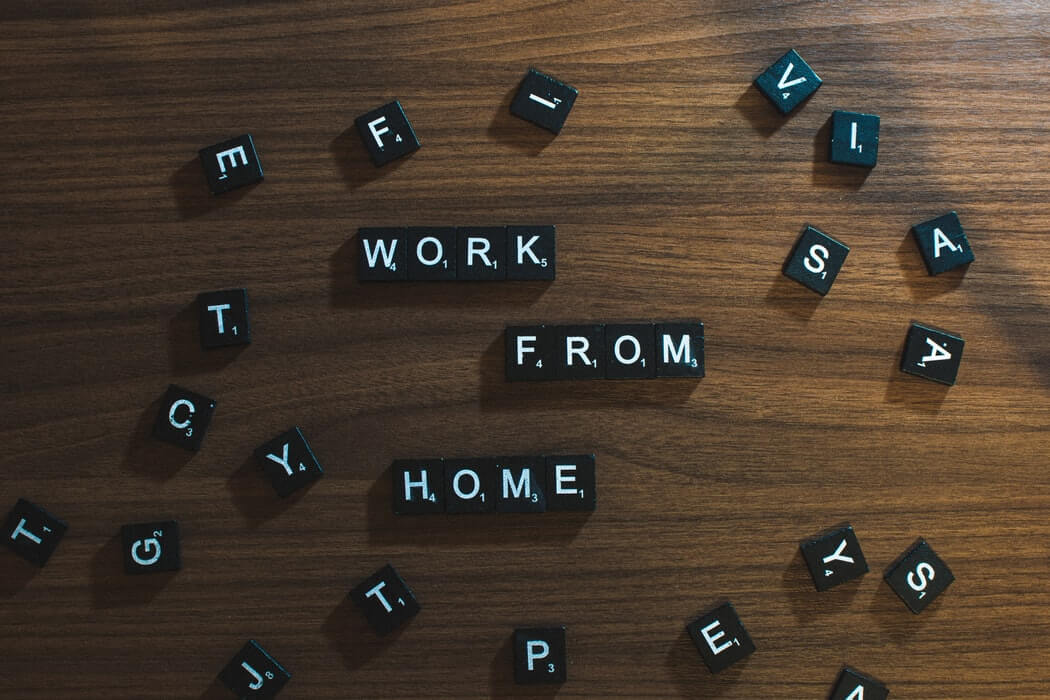Interview #5 Sophia Dusi: "Companies reduced their investment in the HR as it mainly costs money but doesn’t create revenue!"

Hello, our dear readers! We continue to interview HR experts from all over the world. We hope you enjoy our new interview as much as we do.
Let's start!
Today our guest is a young specialist from Germany Sophia Dusi, HR at advalyze GmbH.
Together with clients, this startup is successfully developing business models for the digital future. They accompany their clients from the first digitization step to international scaling. Advalyze reduces investment risks in digital business models. Lean startup, design thinking, and digital innovation help maximize the digital potential of any company.

Sophia Dusi about her passion for HR:
"While being abroad during my bachelors, I developed my passion for HR. Ever since I am working in the HR area, trying to make my colleagues experience in the company better every day".
AO: Sophia, let's start our interview with such a question – Can you share your thoughts on why HR is an important function in any organization?
S: I would even like to say that HR is one of the most important functions in an organization. While being the connection between the management and the employee, many important matters are dealt with in the HR area. As today's working environment is characterized by a focus on work-life-balance and purpose-driven employees many processes had and have to be restructured in the HR department. Attracting new employees, retaining and developing the existing employees is a key function of HR.
AO: What is the one thing that you enjoy most about working in HR?
S: Working in the HR department gives me the opportunity to build up great and diverse teams which are the most important asset of a company, enhance my colleagues' experiences at our company by improving processes, implementing new great structures for the team and having an open ear for all matters. The focus is shifting from business goals to achieving personal goals. This identification with the workplace is a great development.
AO: Can you name us, please, three areas that you feel need the most improvement, based on your understanding of common HR practices?
S: The overall understanding and appreciation of HR in companies is often still weak. The potential benefits of an HR department are still not clear to all organizations, that is why HR is often not involved in strategic processes to an acceptable extent. We should get to the point where HR is seen as a Business Partner/Sparring Partner which is involved in strategic decisions and not only responsible for operational work.
For many companies, the big challenge of digitalizing processes is still ahead of them. HR as a department should act as a pioneer and therefore contribute to the company's development. Going even further, HR has to use all the data and tracking possibilities that are out there to get the best learnings out of their reports.
The employee is in the comfortable position of being the one to set demands. For the HR department, the challenge is to keep up on attracting the best candidates to the company.
Personal connections are still key for any HR department.
AO: Where do you see the HR industry in the next 5 years?
S: Hopefully, HR will rise to get a more strategically relevant area for companies. Appreciation will have increased and all HR matters can be dealt with mostly digital. Nevertheless, personal connections are still key for any HR department.
AO: Sophia, what would you say are the biggest challenges of working in HR? and how do you deal with them?
S: The biggest challenges for me are always keep up on the vibes in the team. Sometimes it is difficult to understand the reactions and feelings of other employees, which to accept is hard, as the main goal for me is to support employees wherever I can.
Bias is still a huge topic in recruitment. It sadly will never be removed 100%, but it would be great to create greater awareness for that.
In the hiring process, unconscious bias happens when you form an opinion about candidates based solely on first impressions. Or, when you prefer one candidate over another simply because the first one seems like someone you’d easily hang out with outside of work.
AO: How does the onboarding of new employees go into your company?
S: The onboarding process starts way before the first day of employment. Once the new employee has signed the contract, we select a buddy. The buddy is responsible to integrate the new employee in a social way. We already provide access to our internal communication tool and the email login, so the new employee keeps up to date and already gets the chance to contribute to discussions with colleagues.
On the first day, we hand over all technical equipment and provide all relevant information for the necessary programs we use. On the first day, the new employee already gets the first task to work on. After 4 weeks, HR meets the new employee for an onboarding feedback talk.
AO: Ok, Sophia, and what traditions your company has and what is your favorite one?
S: One tradition is an extraordinary Christmas party which is always great fun and sadly only once a year. Other than that, before corona, we had a monthly team lunch and allhands meeting. I really enjoyed the time of getting everyone together.
AO: What is the most valuable professional development advice you have ever gotten?
S: Try to personalize everything you do. If you have a good idea, try it out. If it fails, it is a good learning experience.
AO: Interesting! Let's now talk about the current situation. How do you think the HR industry has changed in connection with the COVID-19 pandemic?
S: Many companies reduced their investment in the HR department as it mainly costs money but doesn’t create revenue. The society of HR professionals has got an even stronger bond, people are willing to help each other and share their learning more than ever to overcome this difficult time.
Germany has always been very hesitant and skeptical about working remotely. In Covid 19 times we have seen that it can work wonderfully and is thus driving flexible working forward enormously.

AO: So your company experienced switching to remote work. How did you prepare employees for such changes?
S: Yes, we have been switching from 100% office to 100% remote in one day. Everyone has their own computer to work on, which we were taking home each day. The management announced that on any upcoming day it could happen that we have to close the office. After the switch, the topic of remote working has been raised at nearly every team meeting to keep up on employees’ feelings and thoughts.
Working in a “new work” context would certainly not have taken place so quickly without corona.
That's all for today. Many thanks to Sophia for participating in our interview and for the valuable information. In case you would like to ask your own questions, write down them in comments. Also, if you want to read an interview with a particular person, let us know.
Learn more about LMS 2.0 Platform for employee training.
Take care 😊